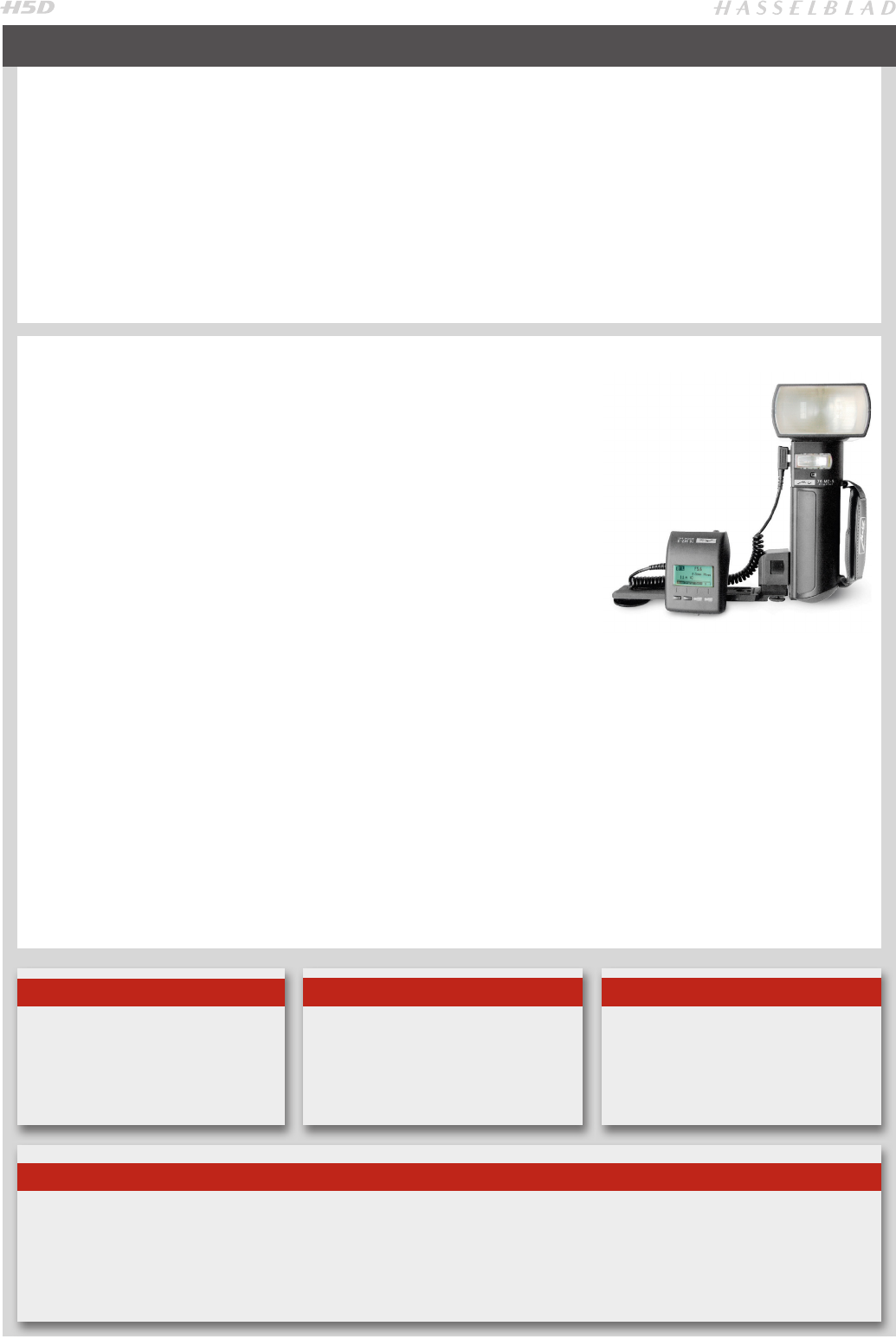
85
Note
As with all strobe/studio flash use, very particular attention should be taken to ensure correct connections and general handling
practice. Potential dangers might increase when cameras are also connected to electronic peripherals (computers, lighting backs,
etc) and should diminish when IR and similar wireless flash release devices are used.
Victor Hasselblad AB and Hasselblad A/S can accept no responsibility whatsoever for accidents that might occur or damage
caused when Hasselblad equipment is used in combination with third-party backs of any description.
Note
Do not attempt to connect a flash unit
dedicated for use with another camera
brand via the hot shoe. The flash unit
and / or camera could be damaged.
Note
Only flash units specially adapted for
use with the H5D should be connected
to the hot shoe on the camera.
Note
If using flash/strobe as the main light
source and 1/800s shutter speed,
remember to turn off the True Exposure
function (Custom Option #13 on grip).
The H5D can be used together with most flash units in man-
ual mode. However, to make use of a TTL automatic function,
you must ensure the flash unit is compatible with the SCA
3002 system. Connection is either by the PC socket or by the
hot shoe (see warning note below).
The viewfinder houses an integral fill-flash with a guide
number of 12 and features OTF/TTL flash control. This back is
capable of providing enough illumination for many fill flash
functions outdoors as well as simple indoor shots at shorter
distances.
Flash output can be adjusted separately from ambient ex-
posure for optimum control.
Separate flash units can be used in dedicated mode when
connected to the hot shoe if the back is compatible with the
SCA3002 (Metz) system using a Hasselblad SCA3902 adapt-
er. This provides a cable free link up for information transfer.
Flash synchronisation can be set to normal or rear (the be-
ginning or end of a capture).
Please see the relevant user manuals for information regard-
ing separate flash units.
GENERAL
When using the A or S setting together with flash, the exposure requirements of
the camera will dominate which might produce slow shutter speeds indoors, for
example, requiring the use of a tripod. If, on the other hand, you select P or Pv in-
stead, then a shutter speed of 1/60 or faster is automatically chosen by the camera
enabling you to hand hold.
When using flash close up or when using larger aperture settings, remember that
the flash unit’s output has a specific minimum duration which might still be too
great for correct exposure. Read the back’s output specifications for further infor-
mation regarding any potential restrictions.
You can use the flash metering capability with external flash units of all kinds (TTL
flashes must be set to Manual mode).
Rear sync is a useful feature used either for effect or to produce a more ‘natural’
look when combining long exposures involving light trails and flash.
When using suitable dedicated backs (compatible with SCA3002), adjustments
are made automatically and governed by the settings on the camera. This applies
to whether the flash unit is set to TTL or whether it is set to its own integral meter-
ing system (A).
Control of either the integral flash unit or separate SCA3002 compatible flash unit
regarding the two functions, exposure compensation and shutter sync, is via the
grip. The flash measure function can be used for flash units that are not SCA 3002
compatible or for SCA 3002 compatible backs at manual setting.
To change the balance between flash output and camera exposure requirements
to produce a variety of effects, use the exposure compensation function. For vari-
ous long exposure effects use the sync function. To make flash exposure tests use
the flash measure function.
FLASH / STROBE


















